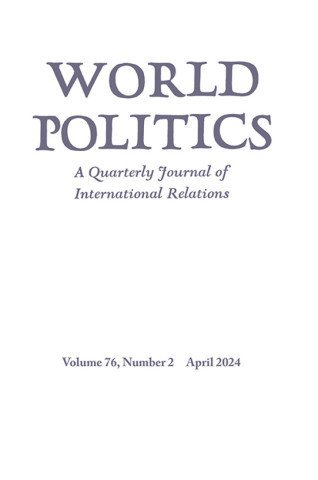妥协的力量
IF 2.5
1区 社会学
Q1 INTERNATIONAL RELATIONS
引用次数: 1
摘要
在一个日益公共外交的时代,传统观点认为妥协的领导人会损害自己的声誉,失去选民的尊重,从而破坏国际和平与合作的前景。本文挑战了这一假设,并测试了领导人如何协商妥协,避免支付国内批准和声誉成本。根据个人核心价值观、心理过程和党派关系等理论,作者认为领导者通过行使提议权和发起妥协来减少或消除国内公共约束。作者通过调查实验来测试公众对领导人在安全和经济问题上的策略的认可和声誉的看法,发现对妥协的态度受到听众和领导人的意识形态的制约,自由派的听众更支持妥协。以美国为例,这导致共和党总统在谈判妥协方面有更大的回旋余地。这篇文章的贡献表明,在国际谈判中,行使提议权的领导人在协商妥协解决方案方面具有很大的灵活性。本文章由计算机程序翻译,如有差异,请以英文原文为准。
The Power of Compromise
Abstract In an era of increasingly public diplomacy, conventional wisdom assumes that leaders who compromise damage their reputations and lose the respect of their constituents, which undermines the prospects for international peace and cooperation. This article challenges this assumption and tests how leaders can negotiate compromises and avoid paying domestic approval and reputation costs. Drawing on theories of individuals’ core values, psychological processes, and partisanship, the author argues that leaders reduce or eliminate domestic public constraints by exercising proposal power and initiating compromises. Employing survey experiments to test how public approval and perceptions of reputation respond to leaders’ strategies across security and economic issues, the author finds attitudes toward compromise are conditioned by the ideology of the audience and leader, with audiences of liberals being more supportive of compromise. In the US case, this results in Republican presidents having greater leeway to negotiate compromises. The article’s contributions suggest that leaders who exercise proposal power have significant flexibility to negotiate compromise settlements in international bargaining.
求助全文
通过发布文献求助,成功后即可免费获取论文全文。
去求助
来源期刊

World Politics
Multiple-
CiteScore
8.40
自引率
0.00%
发文量
24
期刊介绍:
World Politics, founded in 1948, is an internationally renowned quarterly journal of political science published in both print and online versions. Open to contributions by scholars, World Politics invites submission of research articles that make theoretical and empirical contributions to the literature, review articles, and research notes bearing on problems in international relations and comparative politics. The journal does not publish articles on current affairs, policy pieces, or narratives of a journalistic nature. Articles submitted for consideration are unsolicited, except for review articles, which are usually commissioned. Published for the Princeton Institute for International and Regional Affairs
 求助内容:
求助内容: 应助结果提醒方式:
应助结果提醒方式:


